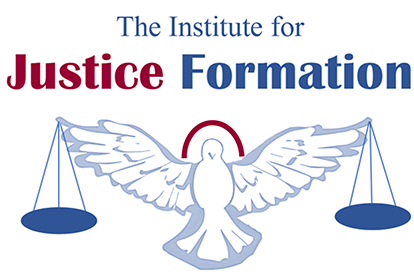Biblical Justice
Justice is always God’s business, as Micah 6:8 proclaims. Unequivocally, God declares His love for justice. Through God’s self-disclosure in the biblical story, Christians come to know what biblical justice is. From Genesis to the Book of Revelation, the cry for God’s justice is heard repeatedly throughout the pages of scripture. God’s love for justice explicit in the Abrahamic Covenant is the essence of Israel’s laws and commands. It is proclaimed and echoed throughout wisdom literature and demanded by the prophets. Christian scholars agree that the two events crucial to understanding God’s justice are 1) the liberation of the Hebrew slaves from Egypt and 2) the coming of Jesus Christ.
Israel’s formation as a covenant community living under God’s law foreshadowed the new covenant under Christ, who also brought deliverance from servitude. New Testament scriptures explicate Christ as the “revelation of God’s justice” (Romans 1:16-17; 3; 21-21). More profoundly, these scriptures call Christians away from conformity to the world, emphasizing the need to be transformed from followers of worldly justice theories to agents of the radical justice ministry of Jesus. Formation is an inherent part of human existence. It is the process through which mere mortals become conduits of the true worship, education, and advocacy initiatives of the Holy Spirit.
Jesus declares that love for God, self, and neighbors is the divinely sanctioned signature of incarnational living. Letters to the New Testament Church encourage all believers to study and implement God’s justice by imitating Christ throughout daily living. In light of these scriptures, the New Testament church must pursue and demonstrate authentic biblical justice to refute the spectrum of justice theories that bear a resemblance to God’s will but are incongruent with God’s righteousness.
Humbly influencing the world to live as one beloved community remains the primary work of individuals believers, and thus the church’s work. Unfortunately, many professed Christians do not connect Jesus and justice. They do not see doing justice as part of their call to follow Christ. In the void created by this abdication, individuals searching for biblical justice have fallen prey to a comingling of justice theories leading to gross distortions in belief and practice.
Biblical justice is a different theology of justice. Many theologians agree that the foundational core values underpinning justice in the biblical worldview include 1) Shalom, 2) Covenant, 3) Torah, 4) Deed-Consequence, and 5) Atonement-Forgiveness. Biblical justice is the moral absolute that guides Christians as we walk humbly with God–doing, being, and declaring righteousness.
Biblical Justice is vastly different from the view of justice held by contemporary society but shares the common vital concepts of distribution, power, equity, and rights with them. In the words of our founding Dean, Jeffrey G. Willetts, Ph.D., “Biblical Justice is about making the love and truth of God a tangible reality.”

